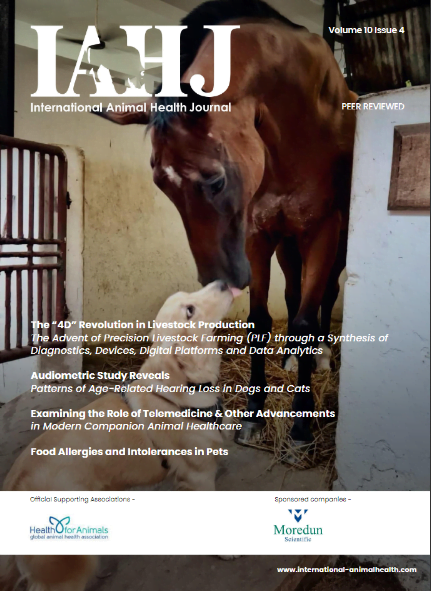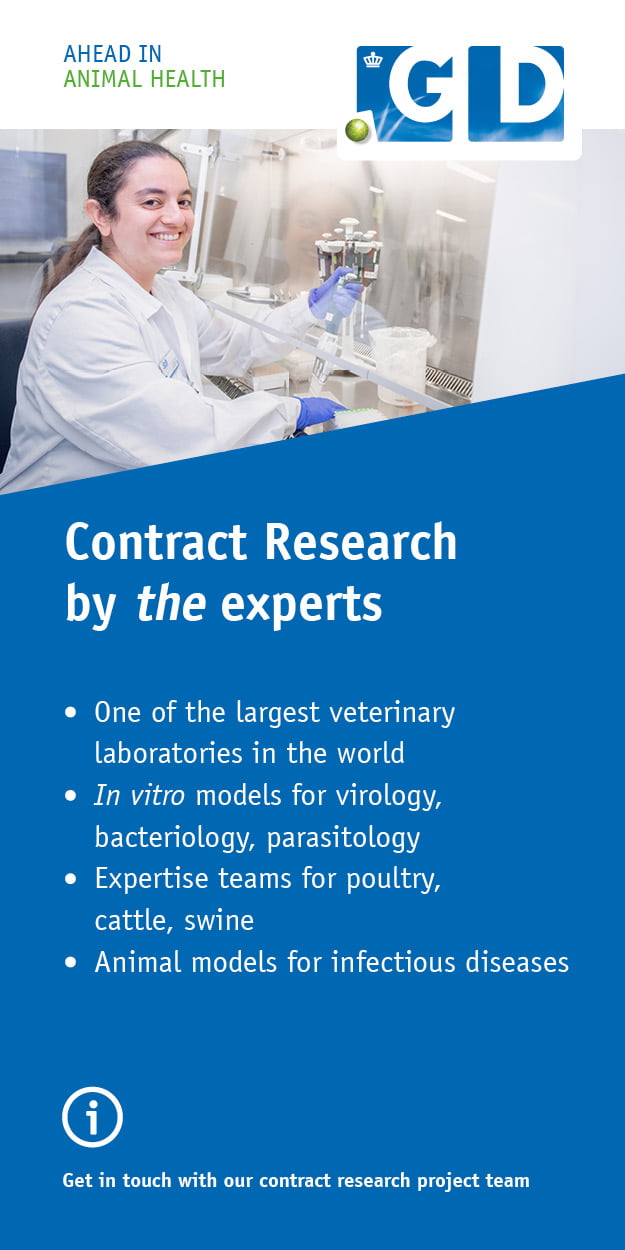
Researchers at the Royal Veterinary College (RVC), in collaboration with researchers at University of Texas, Southwestern (UTSW) Medical Center, have made a significant breakthrough in the search for a durable treatment for Duchenne muscular dystrophy (DMD). The team, led by Eric Olson, Ph.D., professor and chair of the Department of Molecular Biology at UTSW Medical Center and founder and chief science advisor of Exonics Therapeutics, the company formed to advance the development of this therapeutic approach, and Richard Piercy, Ph.D., MRCVS, Professor of Comparative Neuromuscular Disease at the RVC, has succeeded in using gene editing techniques on dogs to restore the expression of the dystrophin protein that is absent in DMD patients’ muscles to levels that could be life changing.
DMD is the most common, fatal, genetic disease that affects children. The same disorder also occurs in many dog breeds. It is caused by mutations in the gene that encodes dystrophin, a crucial protein that helps protect muscle fibres and the heart when they contract. Patients with the disease produce effectively no dystrophin protein, so their muscles and heart become damaged during contraction, leading to inability to walk, skeletal deformities, breathing problems and heart failure. Patients with DMD have a life expectancy that does not go far beyond their twenties.
This preliminary research, published today in Science, demonstrates an approach that could lead to an effective, in principle one-time treatment for DMD for the most common genetic mutations affecting human patients. Through a single intravenous injection, researchers have been able to modify the dystrophin gene in many muscles of the body, including the heart, with the result that some muscles now had almost the normal amounts of dystrophin protein.
Piercy’s team, working alongside clinicians in the RVC’s neurology service, identified a naturally-occurring mutation in the dystrophin gene in a dog brought to the RVC’s Small Animal Referral Hospital. Working now with relatives of this first dog, the combined group has used a technique called ‘SingleCut CRISPR gene editing’, where the researchers target a specific region of the subject’s own DNA. Harmless viruses encoding the gene-editing protein CRISPR/Cas9 were used to express the enzyme in muscle to cut the dogs’ own DNA at a precise location in the dystrophin gene through use of a molecular guide. The body’s own processes then repair the cut, which results in removing the negative effects of the existing mutation. The researchers have demonstrated that dogs treated in this way had restored ability to produce large amounts of the dystrophin protein in their muscles and heart, and in the dog with the highest dose, cardiac muscles were found to have restored dystrophin protein to up to 92 percent of normal amounts after the single treatment.
The research was conducted according to the UK’s Animal Scientific Procedures Act with approval of the local Animal Welfare Ethical Review Board and in accordance with a specialist, independent Scientific Advisory and Ethics Board.
Initial support for the study was provided by CureDuchenne Ventures, the arm of the CureDuchenne charity that funds emerging projects to find treatments for Duchenne Muscular Dystrophy. The RVC’s DMD research programme to characterise the natural progression of the disease in dogs, which provided the foundation for this study, has been supported by grants from The Wellcome Trust, Muscular Dystrophy UK and Duchenne Ireland.
The team believes this is the first time that this form of gene editing therapy has been conducted after birth in an animal larger than a rodent. With further longer-term research, efficacy and safety testing, it is hoped that this breakthrough will have human application. This treatment may be a significant step toward developing a gene editing therapy to repair genetic mutations for DMD, as well as a range of diseases caused by genetic mutations.
Richard Piercy, Professor of Comparative Neuromuscular Disease at the RVC, said: “Researchers have been looking for an effective and durable treatment for Duchenne muscular dystrophy for many years. This SingleCut gene editing approach, pioneered by Dr. Eric Olson’s group, has the potential to be a one-time treatment that could restore dystrophin protein. It is hugely exciting that through a single intravenous injection we’ve been able successfully to modify the dogs’ own DNA so they start generating dystrophin protein again. There is more work to be done, but with this exciting breakthrough, we feel we are a significant step closer to finding an effective treatment.
“A great many genetic diseases affect humans, dogs and other species – many, like DMD – with tragic consequences and this form of gene editing treatment might well be applicable in many of them. We’re hopeful that we’re paving the way for future research into treating some of the most serious genetic conditions that affect us today.”
Disclosure statements: Dr. Eric Olson is a scientific co-founder of, and consultant for, Exonics Therapeutics, and has license and investment interests with the company. Dr. Leonela Amoasii is a consultant for Exonics Therapeutics and is listed as co-inventor, along with Dr. Olson, of the strategy presented in the study.












